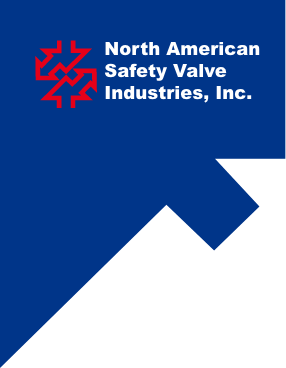Five years ago, I wrote that the bean counters were trying to push you around with their slow pay strategies. Because of the virus, the excuses asking for another 30 days to pay are rolling in.
Here’s the truth: They cannot expect low prices, fast service and slow pay.
For those of you who may need a little help, please don’t turn down the potential for a large sale because you don’t want to hassle with the slow pay stuff. We can bill your customer and pay you your profit when we get paid. We will mark our computer that they are your customer. If they try to go behind your back, you are covered. Obviously, the customer will have to pass a credit check, you can still make a sale.
Here’s some more truth: 80% of our sales are new factory-fresh safety valves. We sell remanufactured valves that look new. And we sell surplus valves, which are technically new but we have to call them “new surplus” even though they look like they just came from the factory.
A customer called today looking for a little help on a large quote. I told him I could really get his contractor over the hump with some new surplus valves. He informed me that new surplus was not allowed at the University. The truth is NASA buys used valves to launch men and women into space.
We are so sure our remanufactured valves will look and perform like new that we offer an unconditional guarantee. If your customer doesn’t like the valve for any reason within five days of receipt, they can send the valve back for full credit and we will pay the freight both ways.
I have heard that the end users don’t like remanufactured valves because they aren’t sure what impurities are in the castings. We take the valves apart and cook them in our acid hot tank. If that doesn’t take care of the problem, nothing will.
For steel flanged valves, we also offer an exchange program. They buy a remanufactured valve, take the old valve off and put ours on. Then they send in the old valve for repair.
We also can repair valves in our shop or come to the plant to test only and/or repair valves. There are no “laws” saying how often a safety valve needs to be checked, but every three years is a good guide.
It was tough in 1983 when there was an oil shortage; 9/11/01 wasn’t good and the economic crisis in 2008 was not pleasant. And now here we are again with the COVID-19 MESS. There are always winners in a crisis but this was a major mess. Hopefully, we will learn from this and go on and be better for it.
Stay healthy and safe. We really appreciate all of the business.
Customer Got a Tight Turnaround?
Suggest a NASVI Valve Exchange Program.
If your customer has several safety valves in need of repair but can’t afford to shut down for lengthy repairs, there’s an easy solution:
A Valve Exchange Program.
Before a maintenance shutdown, we ship the needed safety valves to the customer in advance. The old valves are then shipped to us for repair. After servicing, the valves are set and shipped back to the customer for use during their next scheduled maintenance shutdown.
As with our new valves, computer-aided ordering and parts inventory ensure a fast, reliable turnaround for your customer’s safety valves.
Check with your Application Engineer for details on how a Valve Exchange Program can work for you and your customers.
